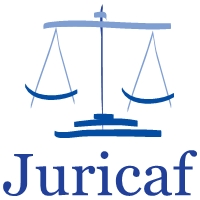A propos
L’AHJUCAF est une association qui comprend cinquante cours judiciaires suprêmes francophones.
Elle a pour objectif de renforcer la coopération entre institutions judiciaires, notamment par des actions de formation et des missions d’expertise.
PRIX DE l’AHJUCAF POUR LA PROMOTION DU DROIT
L’AHJUCAF (Association des hautes juridictions de cassation ayant en partage l’usage du français) crée un prix destiné à récompenser l’auteur d’un ouvrage, d’une thèse ou d’une recherche, écrit ou traduit en français, sur une thématique juridique ou judiciaire, intéressant le fond du droit ou les missions, l’activité, la jurisprudence, l’histoire d’une ou de plusieurs hautes juridictions membres de l’AHJUCAF.
Referring a case to the Court of Cassation – Jean Dujardin, Principal Counsel for the Crown at the Court of Cassation in Belgium
L’accès au juge de cassation
Télécharger l'ouvrage au format PDF
Thank you, Mr. Chairman. I trust you will allow me to keep the customary pleasantries brief, as our allotted time is short.
You will notice that the same subject will be dealt with by Elizabeth Baraduc and myself and that, although we did not confer, our point of departure is the same. This will therefore be a variation on the same theme from the point of view of a judge and that of a lawyer. I think that it is very useful to shed light upon the same theme. It would also be a challenge for an old professor of law like me to try to shed light upon the essential issues concerning a reference to the Court of Cassation with such a prestigious audience.
Access and referrals to the Court of Cassation are determined directly by the specific nature of the Court’s role.
As a supreme court, the Court of Cassation is required to censure the decisions of the lower courts that are alleged to have contravened the law (review of legality or contrôle de légalité) or when certain formal rules of the procedure followed are alleged to have been breached (procedural review or contrôle de régularité). This part of review is sometimes described as disciplinary review (contrôle disciplinaire), in that it only concerns the statements of reasons given in judgments (les motivations), the issue of due credence being given to the documents in the case (la foi due aux actes), the rights of the defence (les droits de la défense) and the principle that the Court must make a decision on all the questions submitted to it and on nothing else (le principe dispositif), which sets the boundaries of the referral made to the Court. But that is not the defining role of the Court of Cassation; its defining role is to ensure that the case law in the ordinary courts is unified, as well as safeguarding the interests of the individual parties to the litigation. The Court therefore has a public interest role which is to check that the lower courts apply and interpret the law consistently, and to ensure unity of this application and interpretation so as to guarantee equality before the law, and, in that way, guarantee legal certainty. At the same time it has to remain mindful of the need to adapt legal rules to an evolving society governed by the rule of law. Indeed, legal certainty should never be used to enshrine a law that has come about through case law that has stopped evolving.
It is not possible to deal properly with the issue of referring a case to the Court without having regard to the Court’s essential role. That is the reason for this introduction. The conditions for referring a case to the Court are procedural and substantive. With regard to substance, they concern the content and scope of the referral, which must be specified by reference to the contested decision, the grounds relied upon against that decision, the applicant - who must have locus standi - and the respondent.
With regard to procedure, the conditions concern the notice of referral (la declaration de pourvoi), service of the notice of referral (la signification de pourvoi), lodging the notice (le dépôt d’un mémoire) and the time limits (les délais).
All these conditions concerning the referral are like pieces of a jigsaw; if one of the pieces is missing, there can be no question of a valid referral to the Court of Cassation.
These requirements may appear excessively formal. Nevertheless, they are justified because an appeal on points of law must remain exceptional. This is because the application to set aside a judgment concerns, and it may only concern, a defect in the court’s ruling which was supposed to contain all the elements of a definitive response, in fact and in law, to a litigious question over which the parties have already had a full hearing. This definitive decision is not open to appeal on the substantive issues of the case. These are essential elements of legal certainty and harmony, which require that the responses from the court should only be called into question under very strict conditions. That is common to every state governed by the rule of law and which has a Supreme Court.
Who then can make a referral to the Court of Cassation?
Only a party to the proceedings and, more precisely, a party to the contested decision, may make such a referral. In addition to the requirement of having an interest in the decision, that party must also have been adversely affected by it.
The party must specify the interest which he or she has, and upon which he or she intends to rely as an appellant on a point of law.
The Office of Counsel for the Crown may appeal on a point of law if it is party to the proceedings. There is also a separate Office of Counsel for the Crown at the Court of Cassation. The fact that the law requires that this Office intervene in every matter before the Court, so as to make its opinion on the merits of the referral known to the parties and to the judges of the Court, does not grant it the status of a party to the proceedings, but that of an amicus curiae, which, independently and impartially, speaks on behalf of the law.
Under what circumstances may a party have access to the Court of Cassation?
The answer to this question is also determined directly by the specific role of the Court of Cassation. This role is not that of a court of third instance brought in to settle disputes. The contested decision must have been made at last instance on the substantive issues; it must have exhausted the jurisdiction of the court on the contentious issue, that is, the court has made its ruling and has nothing more to say on this point of law, which has been definitively decided. The court is therefore functus officio.
Prior to this, the appeal on points of law must have been brought within a time limit specified by law, failing which the party loses the right to make a referral.
The applicant must identify precisely the party against whom the referral is made, what the applicant is criticising in the contested decision, the law which is claimed to have been violated, and the ground relied upon to support the claim. All these conditions must be strictly complied with, failing which the Court of Cassation will dismiss the application, without even considering the basis of the criticism.
When can a case be referred to the Court of Cassation?
The time for making a referral is important. The criticism, upon which the appeal on points of law is based and which the statement of grounds for the referral must specify, is not admissible to the Court of Cassation until the point of law which the litigation concerns has been definitively ruled upon at final instance on the merits, so that no lower court has to go back over it.
Furthermore the law only authorises a referral if the other grounds for having a judgment set aside have been exhausted.
Upon what grounds may a referral be made?
The grounds or reasons for a referral must constitute a specific cause of action and the applicant must identify the legal consequences that are prejudicial to him or her. The applicant must identify precisely the provision which he or she intends to criticise and the legal text that is alleged to have been infringed.
How must a referral be made? How is a matter brought before the Court of Cassation? Satisfying the requirements cited above means complying with certain formalities in order to guarantee that what is, and must remain an extraordinary remedy is effectively taken into consideration. It is not enough that the interested party or his or her lawyer formally applies for an appeal on a point of law. The referral must also be served in its entirety on the respondent to the referral by a court official, namely the court bailiff.
Added to these procedural requirements are the requirements as to the aim and scope of the remedy.
The respondent to the referral must be able to know precisely in what way the contested decision is being criticised, and on which of the court’s reasons, on which part of its dictum and on what legal basis the referral is founded. The respondent is also entitled to know in what way the quashing order, which may result from this, might affect the decision as regards the applicant, but also as regards the respondent to the referral. All these conditions may appear numerous, even exacting. However, all these requirements are merely part of the established respect for natural justice and the general principle of respect for the rights of the defence, which are characteristic of all legal systems.
To be more specific, these demands are all the more important as the procedure for an appeal on points of law is essentially written, hence the importance of the grounds being filed in pleadings drafted by specialist counsel. As regards the written document, I am talking about the importance of what is pleaded and of the exclusion of any ground that has not been pleaded. Our allotted time is too short for me to dwell on this, but I am ready to reply to any questions on this point.
Bringing a case before the court also leads to a problem in controlling the floodgates of litigation. The constant growth in the number of cases submitted to the Court has led to a severe influx which the court must be able to control. Failure to do so would mean that achieving its underlying goal of defining the law would be undermined. This problem will be examined further by Elisabeth Baraduc. Floodgates control calls for solutions which are a direct response to the problem posed by bringing a matter before the Court.
It concerns in particular the compulsory representation of parties by specialist counsel; the establishment of a section for preliminary consideration of referrals; sections with compositions that vary according to the difficulty and importance of the cases; a simplified statements of reasons, which may even be summary if this is appropriate to the nature of the case; and logistical support for justices, that is administrative, legal and computer-based support.
Access to the reported decisions of the Court of Cassation
The question of having access to the Court must also include the question of accessibility to the reported decisions which it produces, accessibility through printed publications but also through Internet sites, the new technologies.
All these demands that shape the way in which a matter is brought before the Court are not in the end fundamentally different from those imposed on every legal measure that requires a response in law.
Nevertheless, as far as the Supreme Court is concerned, these conditions are more demanding and more restrictive because of the consequences of the Court’s decisions. Thank you for your attention.






